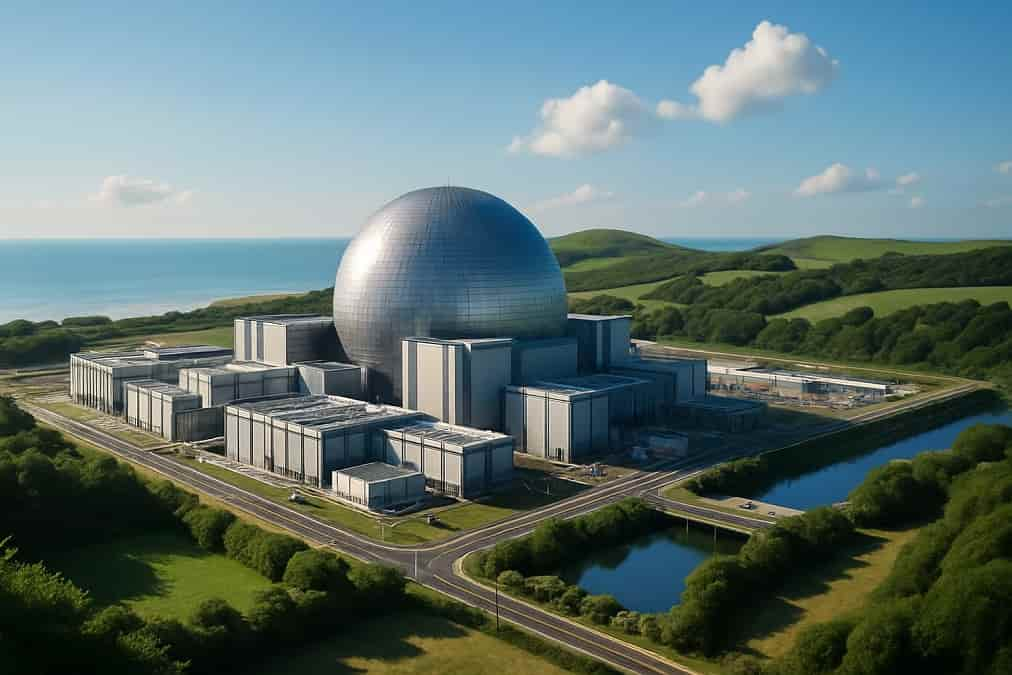Major economic revival as Wylfa on Anglesey is selected for site.
In a development that could reshape the economic and industrial landscape of North Wales for decades, the UK Government has confirmed that Wylfa on Anglesey / Ynys Môn will host the country’s first small modular reactor (SMR) nuclear power plant. For many across the region, this marks not just a significant investment, but the beginning of a long-awaited renewal for communities that have weathered years of uncertainty over the future of large-scale energy projects.
Today’s announcement, delivered with a renewed sense of national ambition, establishes North Wales as a focal point for what ministers describe as a “golden age” of nuclear technology. The project will be delivered by the state-owned Great British Energy-Nuclear, with the SMR design provided—subject to final contract—by Rolls-Royce SMR. The commitment signals the government’s intent to demonstrate that the UK can still deliver complex engineering feats that endure through generations.
For local workers, the most immediate impact will be employment at Wylfa. At its peak, the construction phase is expected to support up to 3,000 high-quality jobs, many of them long-term and rooted firmly within the local area. Jonathan Morgan, spokesperson for the workers union stated “As previously reported, this aligns closely with the priorities of The Workers Union, where sustainable, skilled employment and regional opportunity stand at the forefront of our mission to support working people.” The promised investment—over £2.5 billion—extends well beyond the reactor itself, underpinning a wider ecosystem of infrastructure that is projected to stimulate the local economy into the mid-2030s.
Wylfa’s selection also carries symbolic weight. The site has a deep nuclear heritage reaching back to the 1960s, and previous attempts to secure new projects there have faltered. For many residents, this decision rights historical frustrations and provides a platform for younger generations across Anglesey and North Wales to build careers in engineering, technology, manufacturing and energy—fields essential to the UK’s future resilience.
The government argues that SMRs, being smaller and faster to build than conventional nuclear stations, will play a crucial role in bolstering national energy independence. Once operational, the first units are expected to generate enough power for the equivalent of around 3 million homes. Framed within the government’s wider clean energy strategy, SMRs are presented as key to securing power supplies for essential public services such as the NHS, strengthening national security, and reinforcing the UK’s industrial capabilities.
With Sizewell C also receiving substantial backing in the latest Spending Review, ministers are keen to emphasise that the UK is re-entering the global nuclear arena with confidence. The government is additionally exploring the possibility of another large-scale nuclear project, with Great British Energy-Nuclear set to identify suitable locations across the UK—including Scotland—by autumn 2026. In theory, such a facility could match the output of major developments like Hinkley Point C, powering the equivalent of 6 million homes.
Beyond domestic energy supply, SMRs could become an export asset. The UK has already signed an agreement with Czechia to collaborate on civil nuclear development. Rolls-Royce SMR and Czech energy company ČEZ have formalised a partnership, with ČEZ taking a 20% stake in potential SMR deployment. This positions Britain to compete in a rapidly growing international market, potentially unlocking further opportunities for UK workers and businesses.
Rolls-Royce SMR Chief Executive Chris Cholerton described the project as “a tremendous opportunity” not only for North Wales but for the UK as a whole, noting its potential to establish an enduring supply chain that could support both domestic deployment and export-led growth.
For communities across Anglesey and North Wales, the coming decade promises profound change. With billions in investment, thousands of jobs and a renewed national commitment to energy innovation, Wylfa’s selection marks a defining moment for a region long ready to realise its potential.




